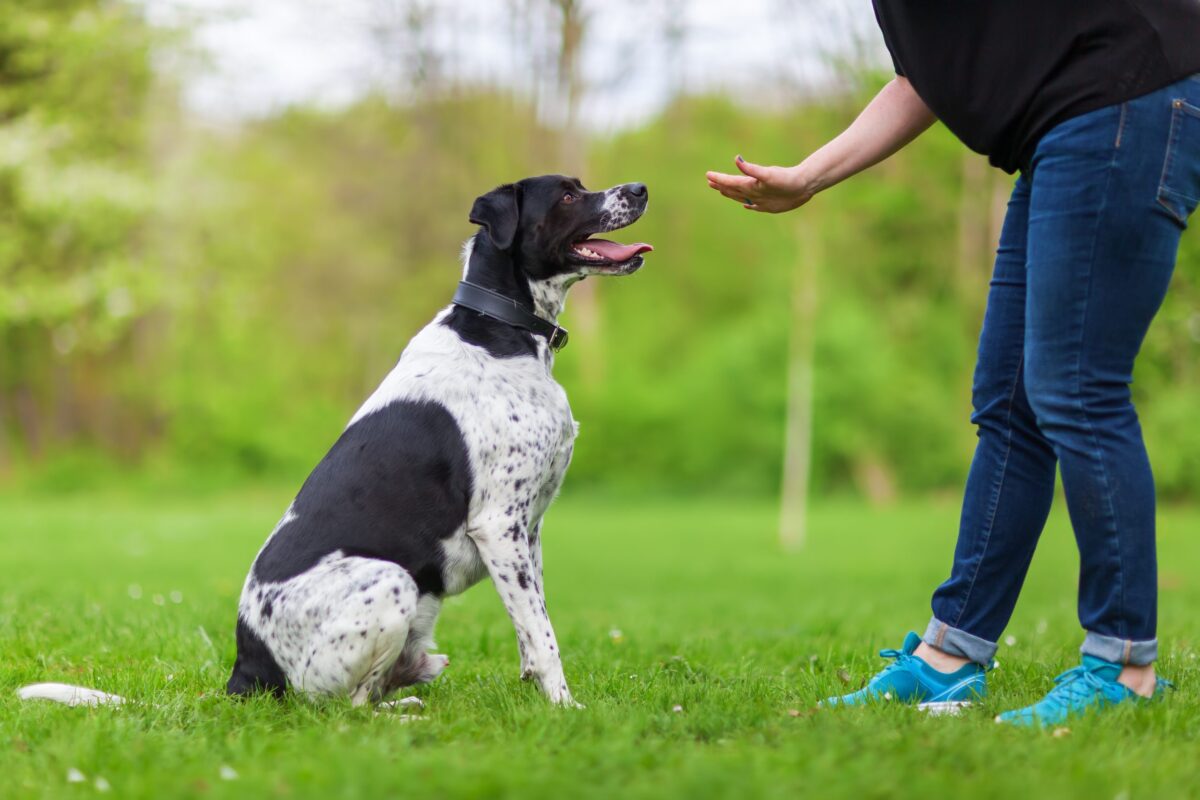

Dogs may not speak human languages, but they are far more perceptive than we realize. They pick up on our words, tones, and even body language, often reacting in eerily intelligent ways. If you’ve ever noticed your dog responding to a word you never intentionally taught them or anticipating your actions before you move, it’s no accident. They are always observing, learning, and adapting to their environment. They probably understand more than we give them credit for—maybe even more than we want them to!
Recognize Their Favorite Words

Say “walk,” “treat,” or “park,” and watch your dog go from lounging to full-on excitement in seconds. Dogs quickly associate words with actions, and they don’t need much training to pick up on their favorite ones. They might even start reacting to words you never intentionally taught them, proving that they’re always listening. Some dogs even learn to spell—try switching to “W-A-L-K,” and you might still get the same enthusiastic response. The fact that they can differentiate between exciting words and boring ones means they understand language on a deeper level than we think.
React Differently to Different Tones

Ever notice how your dog perks up when you use a happy, high-pitched voice but sulks when you sound disappointed? Dogs don’t just hear words—they analyze tone, picking up on whether you’re excited, upset, or just talking nonsense. They can tell when you’re praising them versus when you’re about to scold them, even if you don’t use specific “dog-related” words. If you say “bath time” excitedly, they might even think it’s fun until they see the water. They’re experts at reading vocal cues, which means they likely understand more than they let on.
Follow Instructions Without Gestures

Sure, many dogs learn hand signals, but what about those times when you say “sit” or “come here” without moving a muscle, and they still listen? That proves they’re responding to body language and processing spoken commands. Some dogs even know the difference between multiple verbal instructions, following “stay” when you mean it and completely ignoring it when they don’t feel like obeying. If your dog responds to words alone, there’s no denying that they know exactly what’s going on.
Respond to Conversations That Aren’t About Them

Dogs can make everything about them, but sometimes, they react to words even when they aren’t being directly addressed. If you mention their name in a random conversation, you might notice their ears twitching or their tail wagging in response. Some dogs even react when you talk about their favorite things, perking up when they hear “walk” or “car ride” in a completely unrelated sentence. It’s like they’re eavesdropping—except instead of gossip, they’re just listening for clues about their next adventure.
Get Excited When You Mention Specific People

If your dog has a favorite human (besides you), they might start reacting whenever you say that person’s name. Whether it’s a friend, family member, or their beloved dog walker, they somehow know exactly who you’re talking about. Some dogs even run to the door when they hear a specific name, anticipating a visit before there’s even a knock. It proves they’re making connections between words and people, which is pretty impressive.
Look Guilty When You Ask What They Did

If you walk into a room and say, “What did you do?” there’s a good chance your dog will suddenly start looking very suspicious. Maybe they avoid eye contact, lower their ears, or slink away before you even find the mess they made. The fact that they react before they see evidence of their crime means they know exactly what you’re asking. Some dogs even go into full apology mode, offering belly-up submission or puppy-dog eyes before you’ve said another word.
Lead You to What They Want

Say, “Are you hungry?” and watch your dog immediately run to the food bowl. Or “Want to go outside?” and see them race toward the door? Dogs don’t just understand words—they act on them, ensuring you follow through. Some even escalate their responses, whining or pawing at you if you don’t move fast enough. If they can connect words with actions this easily, who’s really in charge here?
They “Talk Back” in Their Own Way

Some dogs bark, whine, or huff in response to specific things you say, almost as if they’re trying to converse. If you ask a question and your dog tilts its head or makes a noise, it might respond in its own language. Some dogs even mimic human speech patterns, making distinct sounds that resemble words. While they might not be holding full conversations, they’re definitely finding ways to communicate on their terms.
Know the Difference Between Different People’s Names

Your dog likely knows each person by name if you live in a multi-person household. Say, “Where’s Mom?” or “Go find John,” and they’ll likely head straight for the right person. Some dogs even bring specific toys to different family members, proving that they know exactly who’s who. They might not be able to pronounce names themselves, but they sure know how to recognize them!
Understand When They’re in Trouble

Even if you don’t raise your voice, your dog knows when they’ve done something wrong. A simple “Excuse me?” or “What did you do?” can send them into full guilt mode. They may avoid eye contact, lower their head, or slowly back away like they hope to disappear. The fact that they react before any punishment is proof that they fully understand what’s happening.
Anticipate What You’re About to Do

Dogs don’t just listen to words—they predict actions based on them. If you always grab your shoes before heading out, your dog might start reacting when they hear “Let’s go.” Some dogs even know when you usually leave or eat, showing excitement or disappointment based on your routine. They pick up on patterns faster than we realize, making them expert mind-readers.
Pretend They Don’t Understand (When It’s Convenient)

Have you ever noticed that your dog “forgets” commands when they don’t want to obey? If you say “Come here,” and they suddenly act deaf, but they can hear a snack wrapper from across the house, they’re playing you. Some dogs are selective listeners, conveniently tuning in when there’s something in it for them. They might understand everything you say but know when to ignore you.
React to Words in Different Languages

If you teach your dog a command in another language, they can still learn it just as easily as English. Some dogs even respond to multiple languages, proving that it’s not the words themselves but the meaning behind them that they recognize. Whether you say “sit” or “sienta,” they understand what you’re asking—they just expect a treat in return.
The Moment You Realize Your Dog Might Be Smarter Than You

If your dog understands everything you say, there’s a good chance they’ve been quietly training you this whole time. They know what words get them what they want, and they use that knowledge to their advantage. They recognize your tone, read your body language, and probably have an internal dictionary of your most commonly used phrases. They’re always one step ahead, whether they react with excitement, guilt, or selective hearing. So, next time you think your dog isn’t paying attention, remember—they probably understood you better than you understood yourself!
The post 13 Signs Your Dog Actually Knows What You’re Saying appeared first on iHeartDogs.com.